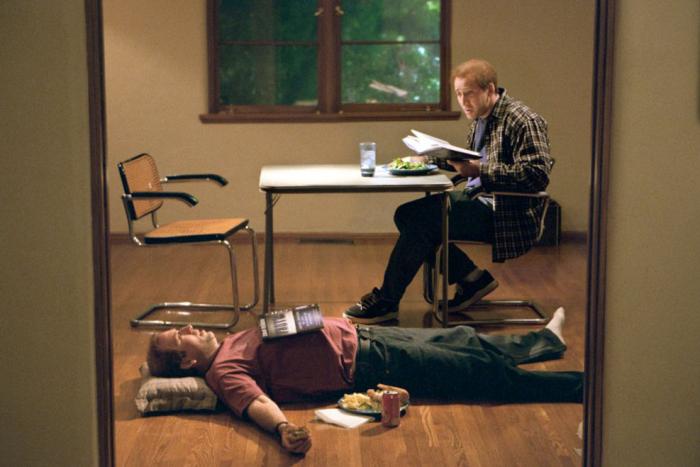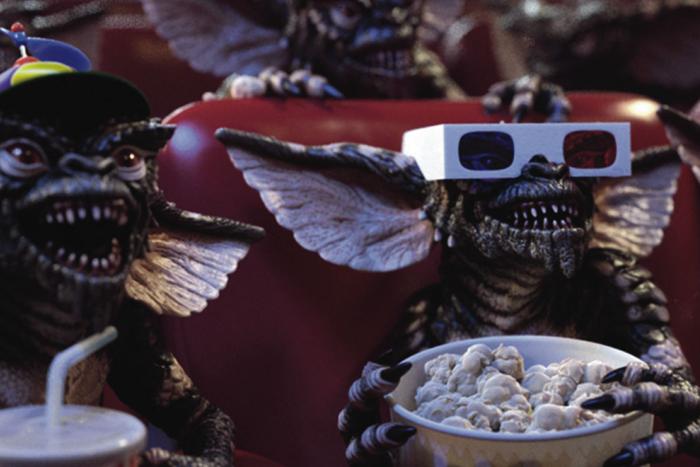Sadly, in the past few years, there’s been no shortage of high-profile incidents to remind us of the devastating consequences of adolescent and teenage bullying. In The Reluctant Journal of Henry K. Larsen, author Susin Nielsen traces the trajectory and aftermath of one particularly violent and terrible act. Fed up after years of abuse, Jesse Larsen, Henry’s older brother, takes a gun to school and shoots his bully before turning the gun on himself. In his daily journal, Henry tries to come to terms with what happened through a serious of wry, painful, and ultimately moving recollections.
Nielsen’s Reluctant Journal has been shortlisted for a Governor General’s Award for Children’s Text. She is also the award-winning author of Word Nerd, Dear George Clooney: Please Marry My Mom, and has written for many TV shows, including the Canadian cultural touchstone Degrassi Junior High. Hazlitt recently called Nielsen at her Vancouver home, to ask her about the making of The Reluctant Journal, her own junior high experiences, the lessons she learned from Degrassi, and Bret “The Hitman” Hart.
Your previous two books were a bit lighter than The Reluctant Journal. What inspired you to tackle the themes in this book, particularly bullying and suicide?
Oddly, in all of my books there’s some aspect of bullying going on. I was reading a book by Wally Lamb, The Hour I First Believed. In The Hour Lamb placed his protagonist’s wife in a very real life event at Columbine and there was a line in the book that said something about one of the killers having an older brother. I remember reading that and it just hit me in the gut, because I had never ever stopped to think about what it would be like for the surviving sibling in a situation like that. Obviously Columbine was completely different, but it got the mind whirring.
I never set out to write an ‘issue’ book, and I tend to loathe books that are more about the issue than the characters, so I guess my point of entry was starting to think about this boy named Henry. Who he was before all this happened, who he is now, and what would this do to him and his family? I never villainize Jesse, Henry’s brother. I tried to write it from a place that was trying to understand what brought him to that place, that place of no return, but obviously in no way condoning what he did.
That’s what’s so great about it—no one is villainized or turned into a monster. Jesse’s bully isn’t a monster either, the bully has a family, too.
It’s funny because I like to use humour as a way in. When people hear about the book they’re like, “Well how can there be any humour in that book?” But they read it and see there is humour. And there are points when you can laugh in the book. Because it’s Henry’s perspective and Henry is going through a lot of typical 13-year-old stuff. The normalcy of life does go on despite the absolute abnormality of the horrible thing that has happened. When I was writing Reluctant Journal, to be honest, bullying was not the hot topic that it is now. And then it did suddenly feel, inadvertently, that it had become very timely. Especially with the ‘It Gets Better’ campaign.
I love the psychologist character and the relationship he has with Henry. And the “robot voice” Henry adopts when he’s feeling stressed or angry. How did you come up with that? That was such a telling symptom of his grief.
The psychologist was really a work in progress. The first draft of the book was written in a different way. It was written as if it Henry was saying these things in sessions with the psychologist and the psychologist was not a developed character at all, which was a problem. Also, it didn’t make much sense. A lot of what Henry was revealing he would never say to a psychologist. So when I went into my next draft, I realized I had to reframe it and make it much more of a private journal that his psychologist had recommended [Henry keep]. Through that I could bring to life the psychologist and that was oddly really fun, bringing Cecil to life.
The robot voice… there’s often stuff that happens in my real life that sits there for a while. We have very good friends, and their oldest son was going through medical school, finding it very intense as he was working around the clock. We all met for dinner at a few points during that time, Cam was so tired, and he had lost a lot of weight because of how hard he was working and there was no time to eat, and he would sometimes start to talk in a robot voice at the table, when we were starting to eat. It was hilarious and we would all be laughing. He would totally do it on purpose and he’s a very funny guy, but I think it just stuck in the back of my head. Because there was a part of it, even though it was really funny, you could also see that it was ever so slightly manic. This was a guy in desperate need of a good night’s sleep, so I think that’s probably where it came from. I think it’s a great device for Henry.
What I also liked about the book is that by its end not everything is resolved for Henry. Was that a conscious choice?
It was very conscious. I thought there was no way this story could have a happy ending. I don’t want it to have an unhappy ending. I want us to feel that he’s going to be okay. It’s not going to be a good journey all the time. For Henry to have people in his life like Cecil, like his friend Farley, like his dad—I feel that at the core he’s going to be okay. But do I think the marriage of his parents survives? No, I don’t think so.
Well, it’s very hard to come back from that.
I could be wrong. Maybe they manage? I don’t know. I think at the moment it’s probably better that his parents are not together. Like, how do you get rid of that blame? I think that’s a big point in the novel. When you realize that Henry’s mom blames the father for what happened. Even though she knows that’s irrational. It doesn’t mean you don’t have the feeling.
I love the band of characters Henry ends up hanging out with. Do you find that your readers connect with these outsider characters?
I think so. I think adults really do. I always find that interesting. My books are YA, but when adults read them they tend to enjoy them as well. I think they connect with their own past childhoods and growing up and memories. Kid readers do seem to connect with the characters but I don’t think you need to be an outsider to connect with them. I like to think that people connect with the genuineness of the characters. I try really hard to create well-rounded characters that are funny in their own ways but are also really flawed.
Wrestling plays a hilarious role in the book. Henry’s family and his best friend Farley are obsessed with it. Are you a wrestling fan? Why did you make Henry obsessed with wrestling?
(Laughs) I’m trying to think of where that idea came from because no, I am not into wrestling at all. Not even close. I did my research believe me. I watched more of it than I care to admit. I watched a lot of it on TV—you’d be surprised how many times this is on TV during the week! I read Bret Hart’s autobiography Hitman. I got the idea really early on, I think I knew metaphorically that it would work. In the sense that in the wrestling world there are baby faces and there are heels. That’s what I found in Hart’s book that was useful, that they would change places, that a baby face would suddenly become a heel. That suddenly the good guy would become the bad guy.
It makes sense in the story: people that are bad become good, and vice versa.
Jesse was the victim, he was a victim up until that day. And then he became the villain. He became the perpetrator of the worst act of violence. And suddenly it doesn’t matter what went on all those years before. He will forever be burned in everyone’s mind as the bad guy. I’m not saying that’s wrong. He did a horrible thing.
There are always two ways of looking at things. When Henry’s talking about the news coverage the incident receives… if that’s your family member, it’s hard. It comes out in Henry’s diary—he both loves and hates his brother.
Yeah, and that was the quote I got from another Wally Lamb book. There was a line that said, “I loved my brother, I hated him.” That in a nutshell describes what Henry’s feeling.
I know you have a son, how does he factor in your writing process. Do you bounce ideas off him?
Certainly with Word Nerd, he was the very first person I read it to. He loved it. I think he partly loved it because he couldn’t believe it had come out of his mother. He was at the age where he thought what I did was great. With this book, he was 15 at the time, I asked him to read the manuscript and he said, “Mom, I already have so much reading!” I wound up having to pay him $50 to read the manuscript. I really wanted his insight.
I don’t look for big stuff from him. I look for whether he’s engaged or not, or have I done anything super embarrassing like using a super out-of-date phrase. I try to avoid major slang as it can go in and out of fashion. I like him to read for stuff like that. He’s so not like any of my characters, and I would never write him in, although it’s not true that I wouldn’t steal from his life. There’s a joke in the book where Henry’s talking about how he wanted to be a contestant on the show Are You Smarter Than a Fifth Grader? but he calls it “Are you smarter than a cheese grater?” That joke directly comes from my son. So I do lift little things from him.
The first script you ever wrote was for Degrassi Junior High. It seems like Degrassi, and its successor shows, have spawned a couple generations of people who grew up learning these life lessons from it. What was it like to get your start on a piece of pop culture history?
How lucky was I? To wind up very inadvertently working on a show that became this massive success? I got through the door by working on craft services, feeding cast and crew muffins and coffee. They were completely non-union and I’d always been writing, so I wrote a spec script between seasons one and two, and because they couldn’t hire any new writers with real experience they gave me a shot at an episode. It really became my training ground. Clearly, to this day, it must have had a bit of influence. That’s where I was finding my voice as a writer, writing for young people, and I was really young myself at the time, too. I did do four books—Snake, Wheels, Melanie, and Shane—because they had the novelizations. That also got me feeling that one day I’d write an original short novel.
What is it about the teenage experience that draws you in?
It’s a time of “firsts.” So it’s a very heady, exciting, confusing time. So far all of my YA novels have been written in the first-person, and I think what I love about that is, tweens and teens, by their very nature, are incredibly self-centred. I don’t mean this in a negative way at all. They’re often not particularly self-aware, they have so much that they’re trying to figure out about their evolving bodies and brains and emotions. So they can be a bit like a bull in a china shop, blithely going about their lives and trying to solve their problems in ways they see fit. But to us, the readers, we might be thinking, “Oh my god, don’t run away to Granville Island, steal a golf cart, feed your half-sisters cat poo, grab the bully’s iPod and stick it in the toilet!” To them, they’re just doing what seems proper and logical at the time.
What was your junior high/high school experience like?
I guess it was fairly typical. I was a year younger than most of my peers (‘accelerating’ kids was a big thing to do back then), in London, Ontario, which was a bastion of whiteness in those days. For a while I was mostly like Ambrose, my nerdy protagonist in Word Nerd. Then, puberty hit, and I became a boy-crazed, typical teenaged girl. Was I bullied? Yes. Did I bully? Yes. Girls are more subtle about it, though. We back-stab, we gossip, we shut certain people out. Do I remember worse bullying going on at my school? Yes. Did I do anything to stop it? No, I did not. Henry has a far bigger backbone than I ever did. I still stay in touch with some people from high school, people I like a lot. But I don’t miss it, not for a second.






